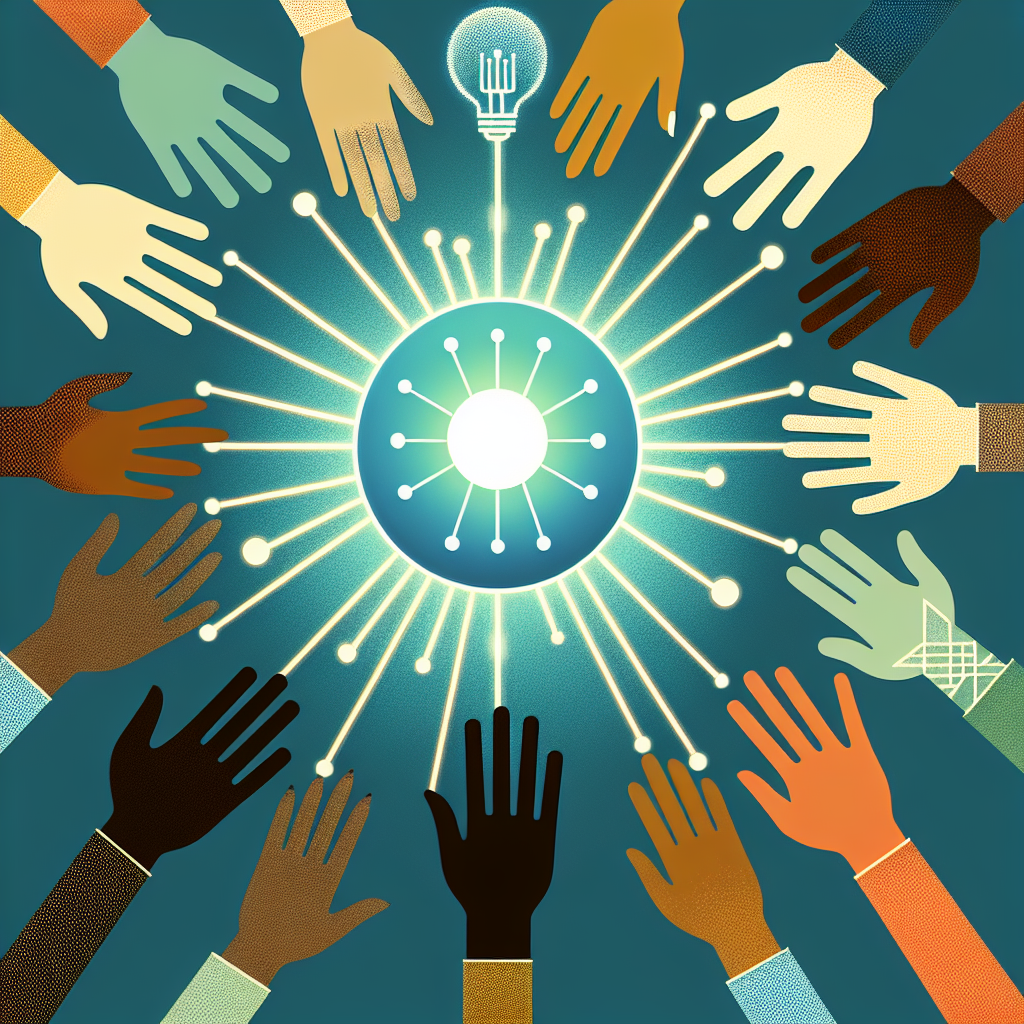Over the past few years, artificial intelligence (AI) has emerged as a transformative technology with the potential to revolutionize various industries, from healthcare and finance to transportation and education. However, there is growing concern that AI is not being developed and deployed in a way that benefits everyone equally. In fact, there are fears that AI could exacerbate existing inequalities and create new forms of discrimination if left unchecked.
The concept of democratizing AI is gaining traction as a way to ensure that this powerful technology is used in a fair and inclusive manner. Democratizing AI means making AI accessible to a wider range of people and organizations, not just large tech companies with deep pockets. It involves promoting diversity and inclusion in AI development, ensuring that the benefits of AI are shared more equitably, and empowering individuals to understand and engage with AI technologies.
One of the key reasons why democratizing AI is so important is that AI has the potential to amplify existing biases and inequalities. For example, if an AI system is trained on biased data, it could perpetuate and even exacerbate those biases in its decision-making processes. This could lead to discriminatory outcomes in areas such as hiring, lending, and criminal justice.
Furthermore, AI technologies are often developed by a small group of companies and researchers who may not represent the diverse perspectives and needs of society as a whole. This lack of diversity can lead to the development of AI systems that do not fully consider the needs and experiences of marginalized communities.
Democratizing AI is also important for promoting innovation and economic growth. By making AI tools and resources more widely available, we can empower a broader range of individuals and organizations to harness the power of AI to solve complex problems and create new opportunities. This can lead to a more vibrant and inclusive AI ecosystem that benefits society as a whole.
So, how can we democratize AI and ensure that it is used in a fair and inclusive manner? There are several key steps that can be taken to achieve this goal:
1. Promoting diversity and inclusion in AI development: One of the most important ways to democratize AI is to ensure that the people developing AI technologies represent a diverse range of backgrounds and perspectives. This can help to bring new ideas and insights to the table, leading to more innovative and inclusive AI systems.
2. Increasing access to AI tools and resources: Another key aspect of democratizing AI is making AI tools and resources more accessible to a wider range of individuals and organizations. This can involve providing training programs, open-source software, and other resources that can help people learn about and engage with AI technologies.
3. Ensuring transparency and accountability: To build trust in AI systems, it is important to ensure that they are transparent and accountable. This means clearly documenting how AI systems make decisions, providing mechanisms for challenging those decisions, and holding developers accountable for any harmful outcomes.
4. Fostering collaboration and knowledge sharing: Democratizing AI also involves fostering collaboration and knowledge sharing among different stakeholders, including researchers, policymakers, and community members. By working together, we can develop AI systems that reflect a broader range of perspectives and priorities.
By taking these steps, we can work towards creating a more inclusive and equitable AI ecosystem that benefits everyone. Democratizing AI is not just a moral imperative – it is also essential for ensuring that AI technologies are used in a way that promotes social good and economic prosperity.
FAQs:
Q: How can individuals get involved in democratizing AI?
A: Individuals can get involved in democratizing AI by learning about AI technologies, advocating for diversity and inclusion in AI development, and participating in community events and initiatives focused on AI ethics and fairness.
Q: What role can policymakers play in democratizing AI?
A: Policymakers can play a key role in democratizing AI by enacting regulations and policies that promote transparency, accountability, and fairness in AI systems. They can also support initiatives to increase access to AI tools and resources for marginalized communities.
Q: How can companies promote diversity and inclusion in AI development?
A: Companies can promote diversity and inclusion in AI development by hiring a diverse workforce, ensuring that AI teams reflect a range of perspectives and experiences. They can also implement diversity training programs and create inclusive work environments that support the contributions of all employees.
Q: What are some examples of AI technologies that have been democratized?
A: Some examples of democratized AI technologies include open-source AI frameworks like TensorFlow and PyTorch, which are freely available for anyone to use and modify. There are also AI platforms like IBM Watson and Microsoft Azure that offer tools and resources for developing AI applications.
In conclusion, democratizing AI is essential for ensuring that this powerful technology is used in a fair and inclusive manner. By promoting diversity and inclusion in AI development, increasing access to AI tools and resources, ensuring transparency and accountability, and fostering collaboration and knowledge sharing, we can work towards creating a more equitable AI ecosystem that benefits everyone. By taking these steps, we can harness the full potential of AI to solve complex problems, create new opportunities, and build a more just and inclusive society.

